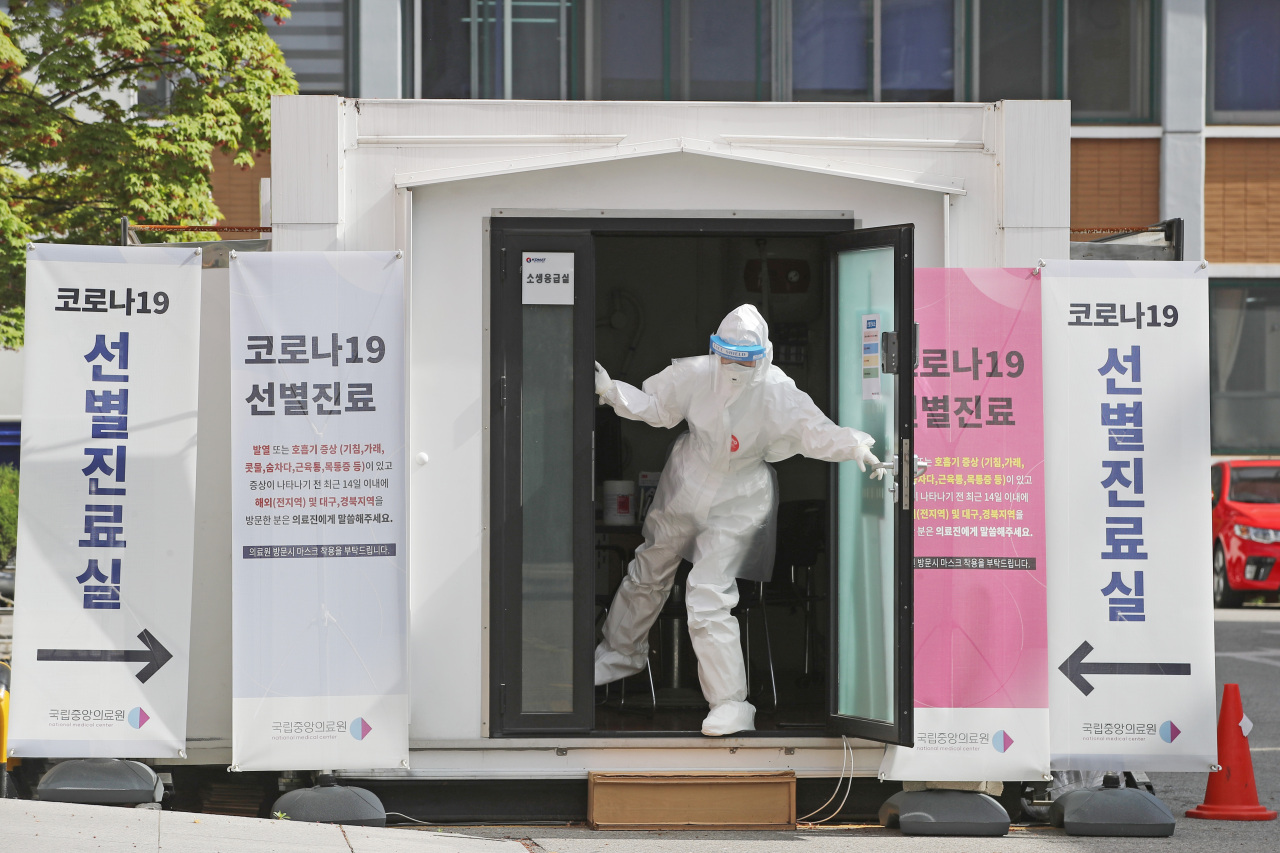South Korea’s health authorities said Wednesday that patients who test positive for the novel coronavirus after making a full recovery may have little or no chance of infecting others.
The center has completed in-depth examinations of six relapse cases and in all of them, the virus was detected in the patient’s body in polymerase chain reaction testing, widely used for COVID-19 diagnosis. But when the pathogen was separated out and cultivated, nothing came out, according to the Korea Centers for Disease Control and Prevention.
“That they showed to be negative in culture test has led us to think the (repeat patients) may have little or no infectivity,” KCDC Director General Jeong Eun-kyeong said during a daily update on the novel coronavirus situation.
She said the center expects results on the 33 other relapse cases to come out soon, which will give the center a clearer understanding of the virus.
Reemergence of the virus has risen as a point of concern in Korea, where the daily number of new infections has fallen to about 10. So far, the country has 207 patients who have tested positive for a second time after being declared virus-free.
Health authorities have also conducted antibody examinations on survivors of the novel coronavirus and found that half of those with antibodies still have the virus in their system.
Out of 25 survivors with coronavirus-neutralizing antibodies, 12 tested positive for the virus again in genetic testing, according to the KCDC.
“We speculate the duration in which the virus remains in patients’ body differs case by case, even though they have developed antibodies. Additional research is underway,” Jeong said.
As the country aims to gradually transition to routine distancing, Korea seems to have flattened the curve for now, reporting a daily increase of around 10 for the fifth day in a row on Wednesday.
Korea saw 11 new virus patients, totaling 10,694 infections as of Wednesday, according to the KCDC.
The virus claimed the life of one more person, putting the number of deaths here at 238.
Amid the modest daily increase, Jeong implored the public to get vaccinated for measles and other diseases.
In response to requests from some 40 countries for Korea’s know-how for dealing with the virus -- virus prevention, quarantine and testing, among other things -- Yoon added that the Central Disaster and Safety Countermeasures Headquarters mapped out a plan on a task force that would cooperate with it.
“We have decided to set up a task force to systematically respond (to requests). This does not mean that we will loosen virus prevention efforts domestically,” Yoon said.
“COVID-19 is not an issue that will be resolved with a single country’s complete prevention (of the virus). Rather, it requires worldwide cooperation.”
The task force convened every other week will be presided over by the vice foreign affairs minister and joined by relevant agencies such as the Ministry of Health and Welfare, the KCDC and the Ministry of the Interior and Safety, to name a few.
Meanwhile, three new cases were reported in Daegu and North Gyeongsang Province combined, the local epicenters of the outbreak. Seoul and Busan each had two, followed by Daejeon and South Gyeongsang Province with one each, the KCDC said.
Imported cases accounted for six of the new infections, of which two were confirmed during airport screenings.
The number of female patients stood at 6,380, or nearly 60 percent, with 4,314 male patients, the KCDC said.
By Kim Bo-gyung (
lisakim425@heraldcorp.com)








